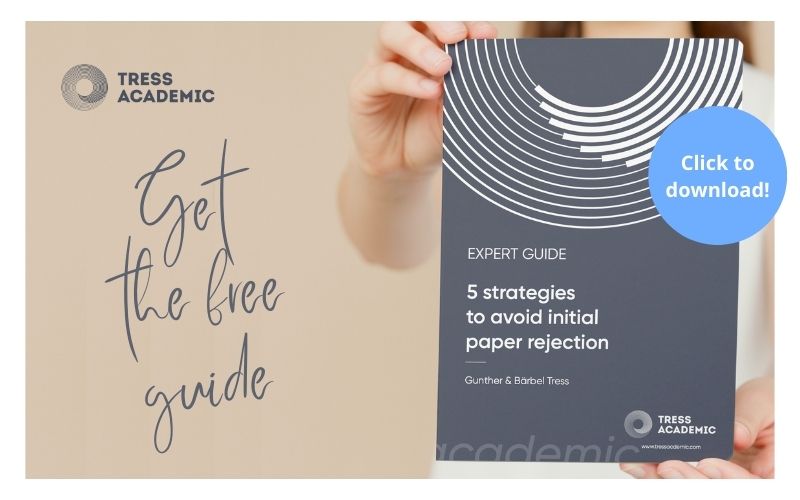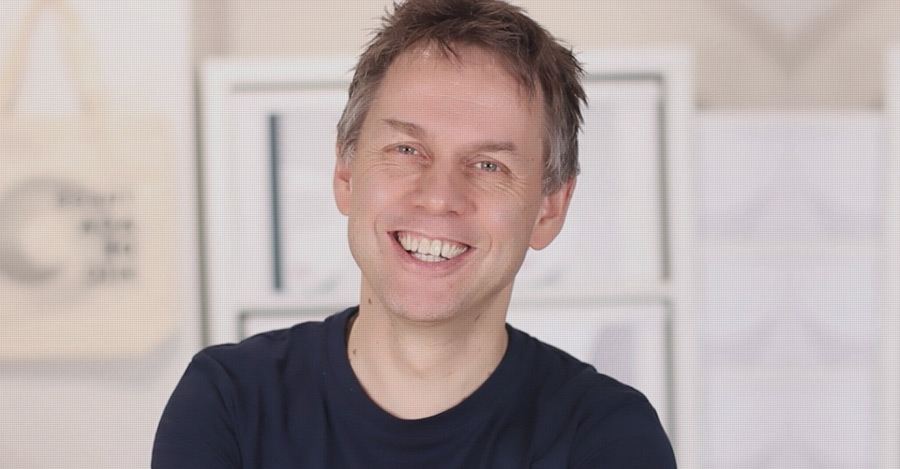Get to know what is behind Gunther’s drive to teach researchers how to write journal papers successfully. Find out what language, writing and creating a text means for him, and what the ups and downs in his scientific writing career have been so far. Learn how experiences in his research career have helped him to become a writing mentor for many academics.
“Hey, Gunther, why did you leave your scientific career? After all that you have achieved, why did you quit academia to teach us now how to write journal papers?”
I’ve been asked questions like these many times by the researchers I work with. Not always so directly, but when, for example, I am giving a course at an institute and we are sitting together over lunch, someone usually brings up the topic. And suddenly the others around the table want to know as well.
I haven’t stopped my scientific career. I didn’t quit academia. I changed my role within academia. Yes, I’m no longer a researcher studying landscapes, environmental issues, or socio-ecological interrelations. I’m now observing how academia works—how researchers work, perform, and communicate. And I provide advice for those within academia who want to improve their skills base. It feels to me like I’m more inside academia now than I was when working in my former field—although I’m no longer employed by an institute or university. So, let me explain why I do what I do these days at TRESS ACADEMIC.
Passionate about writing from an early age
I was always passionate about writing, about creating a text, playing with words and language—basically communicating. Also, as a young person, I remember that I would entertain myself, my family, and eventually friends with written texts, funny poems, or laudations for whatsoever family event. I enjoyed it when these texts were well-crafted and well-received. In these early days, I had a good mentor for my writing: my grandfather, who was a headmaster, gave me tips on how to phrase even better than I had before.
Ask my wife, Bärbel, about the letters she received from me as her then boyfriend. These were long, hand-written, and obviously did their job, as we’re enjoying a great marriage today. When entering university, I wrote a few travel guides alongside my study, or during the term break, to keep myself busy. To see my books published by a publisher and available in bookstores was truly inspiring! A lot of the writing I did was purely done the way I thought would be right. After my grandfather passed, I didn’t have another mentor. Instead, I trained myself to notice what works when writing and what does not.
First PhD paper rejected
Years later, when I was busy studying for my PhD at Roskilde University in Denmark (read our blog post #48 to learn about my PhD experience), I experienced first-hand the other side of writing: Not getting published, or as it’s called in the journal world, rejection. I had written my first scientific paper ever and had handed it in to a geography journal. I thought the paper was fine. Shortly after I submitted it, I got it back: rejected. The journal editor wrote that my paper wasn’t the sort of text they published. It didn’t live up to the quality requirements of the journal.
Ouch, I was disappointed! I had no one to teach me how to write a journal paper, but I knew I could write. So I had tried my best to write a good paper, but I failed. It felt awful. It was not the motivation booster I was hoping for during my PhD study. And I had nobody who could explain to me why my paper was rejected. Now, I can clearly see all the mistakes I made, but at that time, I did not know anything about the requirements of a research paper for an international, peer-reviewed journal. I was surprised, but I definitely wanted to understand how to do better next time. See post #52 to learn about how to avoid your paper getting rejected.
Successfully published in science!
Luckily, it wasn’t long before I got my first journal paper accepted. I had studied how scientific papers should be written, I followed the guidelines I could find, and I found an experienced mentor who provided valuable advice: an English professor. It was sweet, getting an acceptance letter from a journal, and seeing the final paper published and having it in hand was even better! Many more scientific papers, as well as other academic publications such as book chapters, books, journal special issues, and other publications followed. It felt good to have them in hand and show them to peers.
Worked as a reviewer and an editor
A few years further down the line, I was working at Wageningen University and Research Centre in the Netherlands, and I got more and more involved in reviewing papers for journals. It is a unique experience when you have the work of other researchers in your hands and the journal asks for your opinion. It’s a challenge to be a critical but also helpful reviewer (see our post #89 to learn what makes a good review report). I also became editor of a book series with Springer (a job that I kept for about 12 years) next to my work as a researcher. Finally, I was appointed as one of four editors for an established journal in my field published by Elsevier, and it became my daily work to deal with papers.
In particular, the editorship brought a lot of insight into the paper-writing and paper-publishing business that I still benefit from today. Suddenly, you have dozens of papers to look at per week from established as well as new or young authors. Daily, I walked the fine line between How can I support and help this author to write a better paper? and What are the minimum requirements for a paper to be given a chance for revision or publication? It’s a difficult walk.
Analysed struggles and failures
With my growing experience in writing and publishing, and with my background in editing, I developed an interest in discovering the success and failure factors for journal papers. I began to systematically analyse manuscripts, reviewer comments, and journal policies to better understand what authors need to do to get their research published.
As an editor, I experienced how much energy and good will authors invest in writing publishable papers which get rejected because they do not communicate well or because the science presented is not considered plausible. I thought, there must be a better way to use all this energy and good will.
The struggles, mistakes, and pitfalls I identified were often not unique to a specific paper. You find similar or even the same problems throughout papers of many authors.

Enjoy helping others
Together with my wife—also a journal editor—we developed guidelines, checklists, and tips on what authors could do to improve their manuscripts and ultimately, increase their chances of getting published. We started to give lectures on this topic and run summer schools with PhD students, until we started our own business (read more about it here) and created our own short courses, and most recently our digital paper-writing programme Paper Writing Academy. It is a good feeling to know you can help others publish better papers, and we enjoy that immensely.
Benefitted from inspiring mentors
Besides my grandfather and my English mentor, I never really had a coach or any formal training for writing. My wife is a great sparring partner for all my writing, and I was lucky to find wonderful academic mentors, lecturers, and teachers around me during my research career. I learned how they communicate and teach, and I was inspired. These guys came from subjects like urban climatology, conservation biology, geography, and landscape ecology, but also music or medieval language, and even some outside academia.
I was not invested in all of their fields, but I benefited from their approach to teaching by motivating people and getting them interested in a subject. I experienced first hand how fascinated they were with their own subjects, and this fascination sparked my interest as well. You learn so much easier with and from someone when you feel that they like what they do, and that they care about you learning from them.

My approach to teaching paper-writing
I brought the inspiration from my mentors into my daily business. It’s not my job to write papers for you, and I don’t advise you on what’s wrong with the science behind your papers. Instead, I want you to understand how papers are written for publication. I teach how to communicate in your paper so that the readers will understand your message. I want to keep all the nasty surprises and extra rounds of revision from you, and to show you a manageable path to writing and publication. Most of all, I hope to motivate you to write about your research.
Writing is communication, and communication means sharing your thoughts with others. You do not necessarily have to like writing to be a good writer, but you should be willing to get your message across to your audience. So I’ll help you communicate in a way that allows you to successfully share with others. Once you’re able to do that, you’ll come to enjoy the exercise of writing as well.
Conclusion
Why do I teach paper-writing? Because I like to help other researchers get their good work published. It’s very rewarding to be able to help. It’s challenging and exciting to find and suggest better ways to make scientific communication more successful, i.e. getting published, being recognised, and being heard. Paper writing is not a gift or talent, but it can be learned—it’s a skill. And as with any skill, it’s a rewarding experience to get better at it. Finally, I teach paper-writing because I enjoy helping you become better at it so that you can focus your energy and time on your research.
P.S. Join me on my free webinar and get to know my approach to teaching paper-writing + collect valuable tips for your next paper submission!
Relevant resources:
- Blog post #48: Lessons learned from the PhD: Gunther’s story
- Blog post #52: Don’t let your paper get rejected: 25 things to avoid!
- Blog post #89: What makes a good review report?
More information:
Do you want to successfully write and publish a journal paper? If so, please sign up to receive our free guides.
© 2021 Tress Academic
